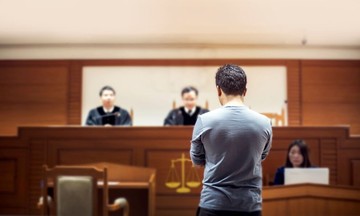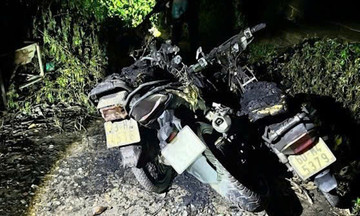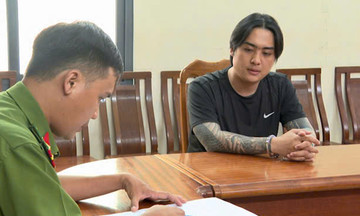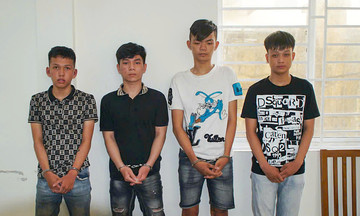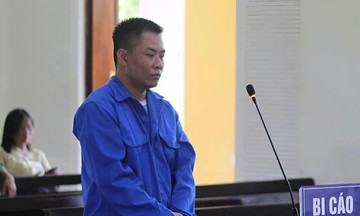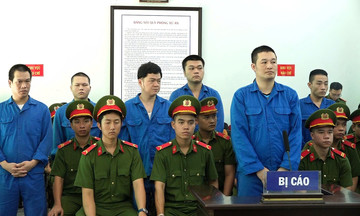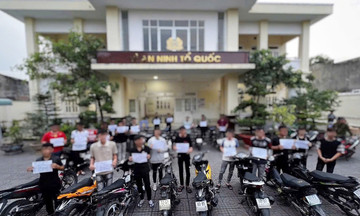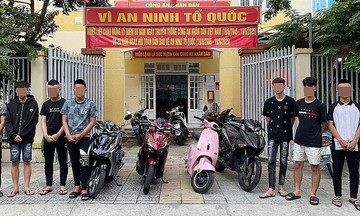A Florida jury delivered the verdict on 1/8/2025. The ruling marks a rare victory for victims in self-driving car accidents, as Tesla CEO Elon Musk pushes for regulatory approval of his company's self-driving software and the deployment of driverless taxis in multiple cities.
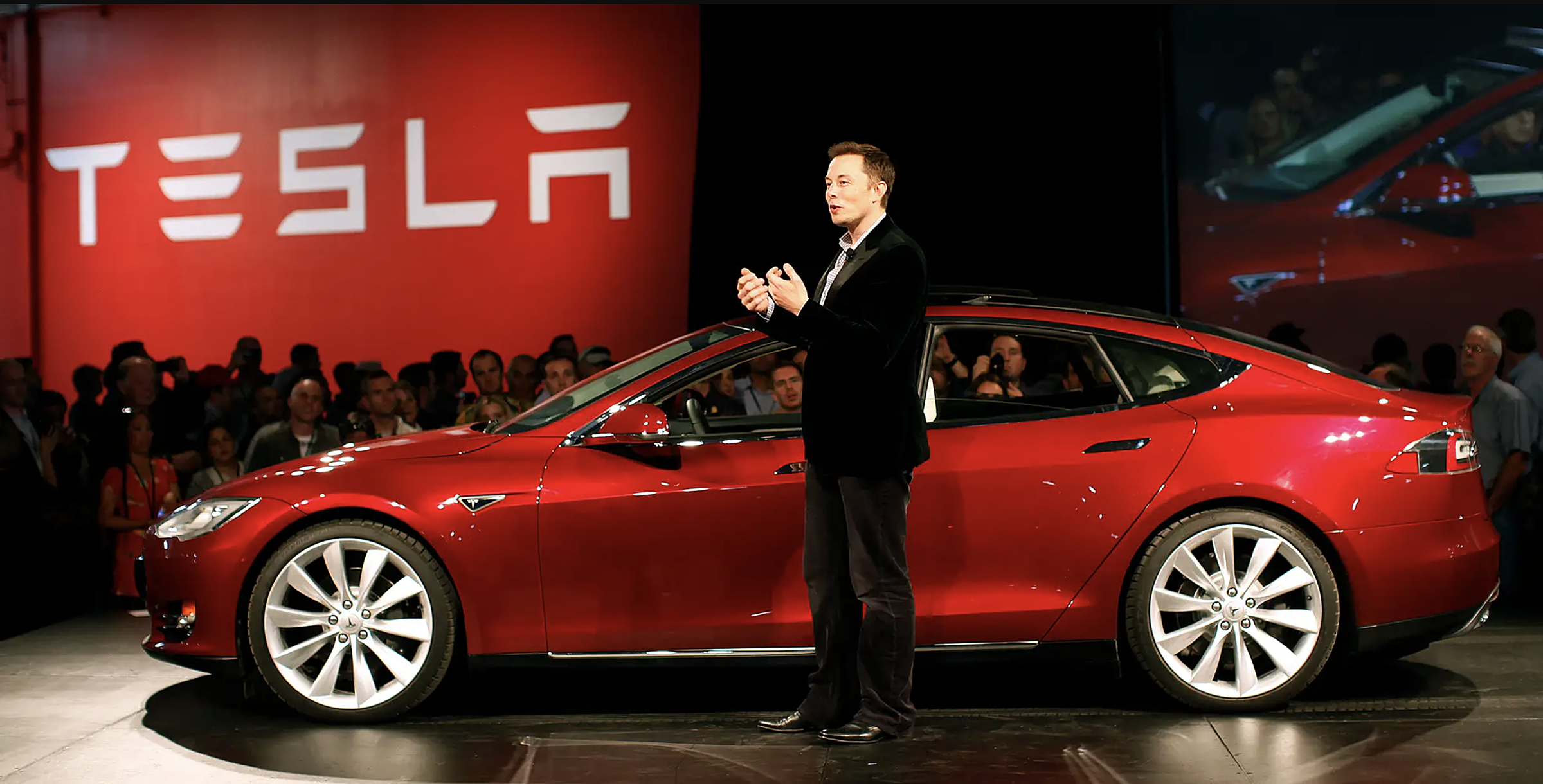 |
Tesla Motors CEO Elon Musk speaks next to a Model S at the Tesla factory in Fremont, California, in 2011. Photo: BI |
Tesla Motors CEO Elon Musk speaks next to a Model S at the Tesla factory in Fremont, California, in 2011. Photo: BI
The case stemmed from an accident in Key Largo, Florida, on 25/4/2019. George McGee was driving his Model S using enhanced autopilot, a semi-autonomous driving feature.
McGee dropped his phone and reached to retrieve it. He believed the enhanced autopilot would automatically brake if an obstacle appeared.
His Model S accelerated through an intersection at over 60 mph, striking a parked car. The car's owner, 22-year-old Naibel Benavides, was standing at the front of her vehicle and died at the scene from injuries sustained in the accident, having been thrown 75 feet. Her boyfriend, Dillon Angulo, survived but suffered multiple broken bones, a traumatic brain injury, and psychological trauma.
The victims' families sued Tesla for $345 million.
Court: Driver not solely at fault
The trial began in the Southern District Court of Florida on 14/7. The plaintiffs argued Tesla designed autopilot for controlled-access highways but intentionally didn't restrict its use elsewhere. The lawyers also criticized Musk's claims that autopilot is a better driver than a human.
Tesla placed the blame entirely on the driver. "To be clear, no car in 2019, nor today, could have prevented this accident," the company stated. According to Tesla, the incident was unrelated to autopilot. They argued that the plaintiffs' lawyers fabricated claims and blamed the car, even though the driver admitted responsibility from the outset.
The federal jury found Tesla significantly responsible because its technology failed and that the driver, even though he admitted to being distracted by his cell phone, could not be solely blamed.
The jury acknowledged McGee's fault, but he was not a defendant in the lawsuit.
Of the awarded amount, $129 million, Tesla was found 33% responsible for the two victims' injuries and losses, totaling $43 million. With an additional $200 million in punitive damages, the total amount Tesla must pay is $243 million.
Tesla: Will appeal
In a statement to CNBC after the trial, Tesla called the verdict flawed and said it plans to appeal "due to serious errors of law and irregularities at trial." While the jury concluded the driver wasn't fully responsible for the 2019 accident, Tesla maintained the evidence proves his fault for speeding and accelerating, which they claim disabled the autopilot. "No car in 2019, nor today, could have prevented this accident," they reiterated.
The verdict concludes a four-year legal battle, notable not just for its outcome but also for reaching trial. Many similar lawsuits against Tesla have been dismissed or settled out of court to avoid public attention.
The plaintiffs' attorney said it's the first trial involving a third-party death caused by autopilot to reach a jury verdict.
"This will open the door. It will encourage others to go to court," said Miguel Custodio, a car accident attorney.
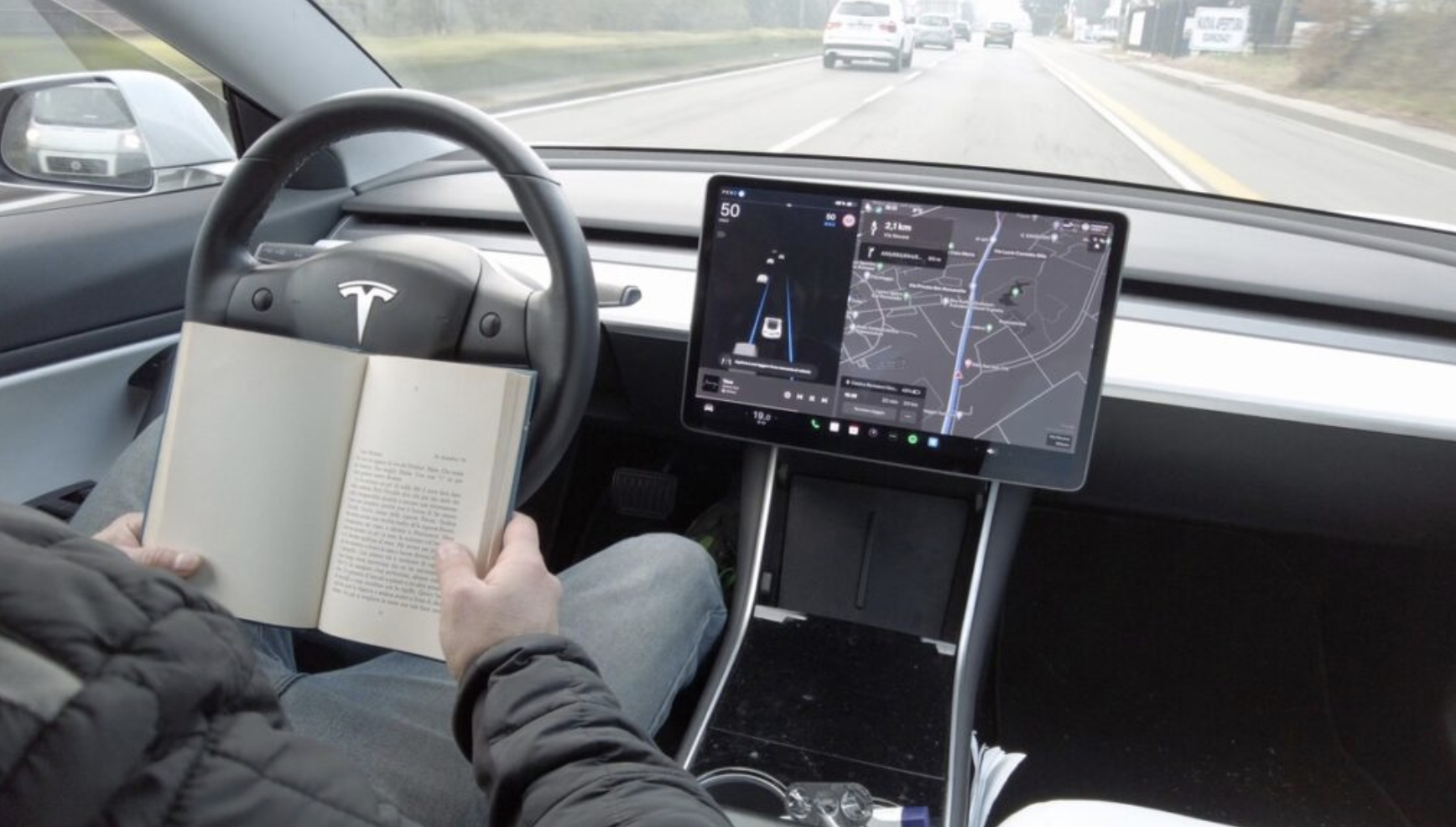 |
A driver reads a book while Tesla's autopilot is engaged. Photo: Euro Weekly |
A driver reads a book while Tesla's autopilot is engaged. Photo: Euro Weekly
The National Highway Traffic Safety Administration (NHTSA) launched an investigation in 2021 into possible safety defects in Tesla's autopilot system. During the investigation, Tesla made several changes, including software updates.
The NHTSA later opened a second investigation, still ongoing, to evaluate Tesla's "recall remedy" addressing issues related to autopilot's operation.
The NHTSA also warned Tesla that its social media posts could mislead drivers into believing their cars function as robotaxis, even though the owner's manual clearly states the car requires manual steering and driver attention to the road and braking.
TeslaDeaths.com, a website tracking Tesla-related crashes, has reported at least 58 fatalities in accidents where Tesla drivers had autopilot engaged just before impact.
Lawsuit's impact reaches Europe
Concerns about self-driving car safety persist globally. The Florida verdict comes as Europe considers regulations for self-driving cars, with significant implications for automakers' ambitions. In countries like Italy, Poland, Greece, and Spain, autonomous vehicles beyond Level 2 advanced driver-assistance systems are largely prohibited on public roads due to a lack of specific legal frameworks, limiting their use to tests under special permits.
Meanwhile, countries like France, the United Kingdom, Sweden, and Switzerland have embraced higher levels of autonomy, provided operations are on approved road sections and drivers have certified clean driving records.
Germany, a pioneer in autonomous driving, has been more permissive than many. However, a concerning trend among Tesla drivers in Germany is emerging. The Tesla autopilot system requires drivers to keep their hands on the wheel at all times.
Many German drivers are attaching water bottles to the steering wheel to trick the car's computer into thinking they are paying attention to the road.
Hai Thu (According to CNBC, NPR)



